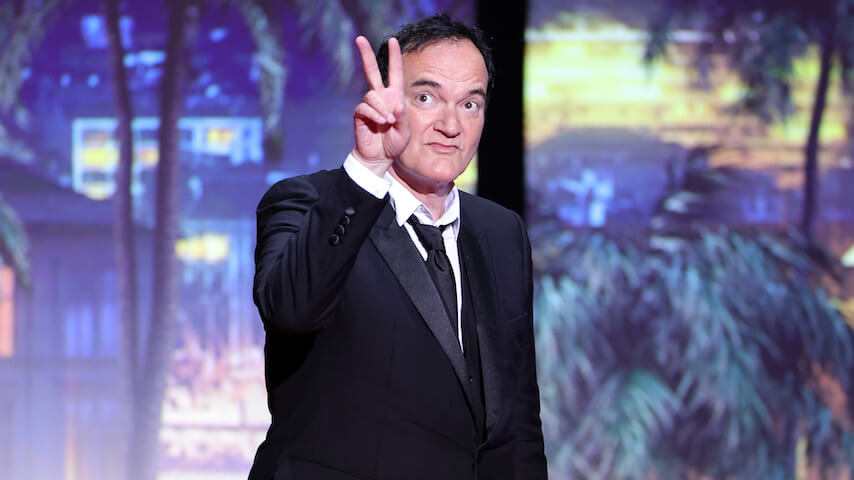Quentin Tarantino—never a man shy when it comes to self-mythologizing—has built a nice little air of mystique around his next movie, having spent the last several years declaring that his tenth film as a director will be his last. And while Tarantino dismisses the idea that he’s bought into his own hype on the matter, mocking, in a recent interview, “amateur psychiatrists” who “psychoanalyze as if they fucking know what they’re talking about about what’s going on with me, about how I’m so scared, alright, of my 10th film,” it does sound like the urge to go out with a bang is impacting what’s already turned into an increasingly long process of selecting that last hurrah.
This is per a multi-hour sit-down Tarantino had recently with the Church Of Tarantino podcast, in which he went fairly in-depth on why, for instance, he ended up scrapping The Movie Critic, the script he’d initially penned to be his final film. Tarantino asserts that the script itself is still good, and that he still “really, really like[s] it.”
There was a challenge that I gave to myself when I did it. ‘Can I take the most boring profession in the world and make it an interesting movie?’ Who wants to see a TV show about a fucking movie critic? Who wants to see a movie called The Movie Critic? That was the test. If I can actually make a movie or a TV show about someone who actually watches movies interesting, that is an accomplishment. And I think I did that.
The issue, apparently, was less to do with the subject matter than the setting: When Tarantino began pre-production on the film, set in 1977 Los Angeles, he realized that he’d basically set himself and his production team many of the same challenges they’d already tackled and overcome during the making of his ninth film, 2019’s Once Upon A Time In Hollywood. “I wasn’t really excited about dramatizing what I wrote when I was in pre-production, partly because I’m using the skillset that I learned from Once Upon A Time In Hollywood, [of] ‘How are we going to turn Los Angeles into the Hollywood of 1969 without using CGI?’ …<i>The Movie Critic</i>, there was nothing to figure out. I already kind of knew, more or less, how to turn L.A. into an older time. It was too much like the last one.”
Tarantino—who clarifies that he could always go back to the script if the muse moves him—also dispelled a few other rumors about the project: Yes, it was originally the 8-part TV drama he’d been talking about making a few years back; no, despite being referred to as a “spiritual sequel,” it wasn’t going to have any character overlap with Once Upon A Time.
Speaking of, the writer/director also talked about the actual sequel that film is getting, which Tarantino wrote, and which David Fincher is directing. (Tarantino may claim not to be too fixated on his “legacy,” but did note that he didn’t want his own final movie to be a sequel.) Why Fincher? Tarantino laid it out with typical humility: “I think me and David Fincher are the two best directors. So the idea that David Fincher actually wants to adapt my work, to me, shows a level of seriousness towards my work that I think needs to be taken into account.” As for current plans: Tarantino is putting the cameras down for a second; his next project is slated to be a play in London’s West End that’ll open in 2026, before he finally gets back to tackling the ever-more mysterious Movie No. 10.
[via Variety]

 Keep scrolling for more great stories.
Keep scrolling for more great stories.
